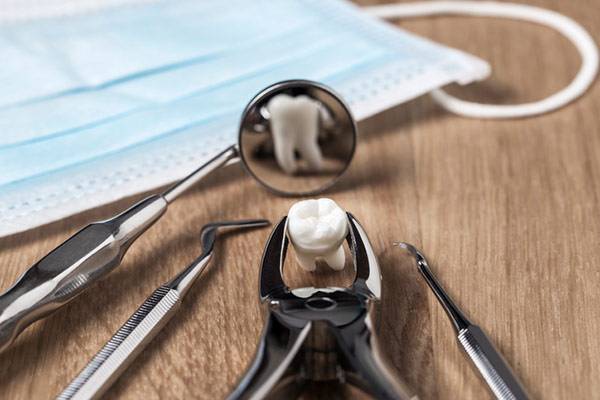|
Your Silver Spring MD Periodontist To replace a missing tooth permanently, dentists will sometimes insert a small titanium screw, known as a dental implant, into the jawbone or gums at the extraction site. As long as you take care of them, dental implants can last up to 20 years with very minimal dental work for issues like cavities and infections. To replace a missing tooth permanently, dentists will sometimes insert a small titanium screw, known as a dental implant, into the jawbone or gums at the extraction site. As long as you take care of them, dental implants can last up to 20 years with very minimal dental work for issues like cavities and infections.When several teeth need to be replaced at once, multiple tooth dental implants are the best option because they provide simultaneous support for all of the replacement teeth, rather than having them be molded individually and then glued into place. Anchors are sutured or screwed into the post and placed on either side of the jawbone to keep implants in place. As you can see, the success or failure of a dental implant is determined by the health of the individual being treated, medications that alter osseointegration potential (the fusing of the dental implant with the jawbone), and the health of the tissues in the mouth. The stresses on implants and fixtures during normal operation are also assessed. The biomechanical stresses created during biting and chewing can be significant, thus planning the position and quantity of dental implants is critical for the long-term health of the prosthesis. The site of the dental implant is decided via CAD/CAM simulation and a drill template called a stent, as well as the position and angle of neighboring teeth, laboratory simulation, or computed tomography. Healthy bones and gums are required for dental implants to be successful in the long run. Because both your jawbone and gums can atrophy after tooth extraction, pre-prosthetic therapies such as sinus lifts or gum grafts may be required to restore optimum bone and gums. FluorideConsider our dental care office, Metropolitan Dental Specialty Group, while looking for fluoride treatment since we provide the greatest service. Keep in mind that fluoride treatments can only impact your natural teeth if you undergo them. Keeping your implants away from any fluoride treatment will help to reduce any side effects. Even after a successful dental implant, remember that you must still take care of your natural teeth. Fluoride treatments might help you keep your remaining teeth healthy. We do fluoride treatments in the following ways: varnish applied directly to the teeth, gels that are placed to individual teeth or in a mouth guard, and foams placed in a mouth guard for up to four minutes on the teeth. Every mouth is in a varied state of health. Every tooth in your mouth, whether natural or implanted, requires care. Working with a dentist at our facility who is familiar with your health and dental history enables them to understand the risks to your health as well as other considerations specific to your case. This allows us to provide you with personalized advice on how to keep your teeth healthy. Tooth RemovalExtraction of teeth may be required if you have teeth with serious decay, infections, or overcrowding. For those who have braces, one or two teeth may need to be pulled to create room for the other teeth as they move into position. Furthermore, compromised teeth may need to be extracted in order to maintain oral health in patients undergoing chemotherapy or preparing for an organ transplant. A tooth extraction is a brief outpatient procedure performed by a dentist or oral surgeon under local, general, intravenous, or a combination of anesthetics. A simple extraction is the removal of visible teeth. Broken, subsurface, or impacted teeth necessitate more invasive surgery. Your dentist will take an x-ray of your tooth before scheduling the treatment. Inform your dentist about all prescription and over-the-counter medications, as well as vitamins, dietary supplements, and herbal therapies. Inform your dentist if you will be having intravenous therapy for another medical condition that will require the use of a bisphosphonate medication. If this is the case, the extraction should be performed prior to starting medication to prevent jaw osteonecrosis (bone death). Recovery from a tooth extraction normally takes a few days. Applying an ice pack can aid in a speedy recovery and reduce swelling. All drugs, including over-the-counter painkillers, should be used exactly as prescribed. Take it easy and rest for the first 24 hours. Also, for the first 24 hours, avoid using a straw. There are certain dangers connected with having a tooth pulled, but if your dentist suggests treatment, the benefits are likely to outweigh the minor inconvenience. After a tooth extraction, the socket, or hole in the bone where the tooth was extracted, normally generates a blood clot on its own. A "dry socket" is a condition in which the blood clot either does not form or dislodges, exposing the bone inside the socket. If this happens, the dentist will protect the area with a sedative dressing for a few days. During this time, a new clot will form. PeriodontitisGum (periodontal) disease, an inflammatory condition that affects both the hard and soft components supporting the teeth, is a significant contributor to tooth loss. Tooth loss can have an impact on a person's diet, which might deteriorate depending on the number and type of teeth lost. Diabetes, tobacco use, impaired immune systems, and poor dental hygiene all increase the risk of gum disease. Regular professional cleanings and good oral hygiene assist to prevent and treat minor gum disease. More severe cases can also be successfully treated through consultation and treatment. Contact Your Silver Spring PeriodontistIf you require dental services, please visit us at Metropolitan Dental Specialty Group. You can make an appointment by calling (301) 585-0400. |